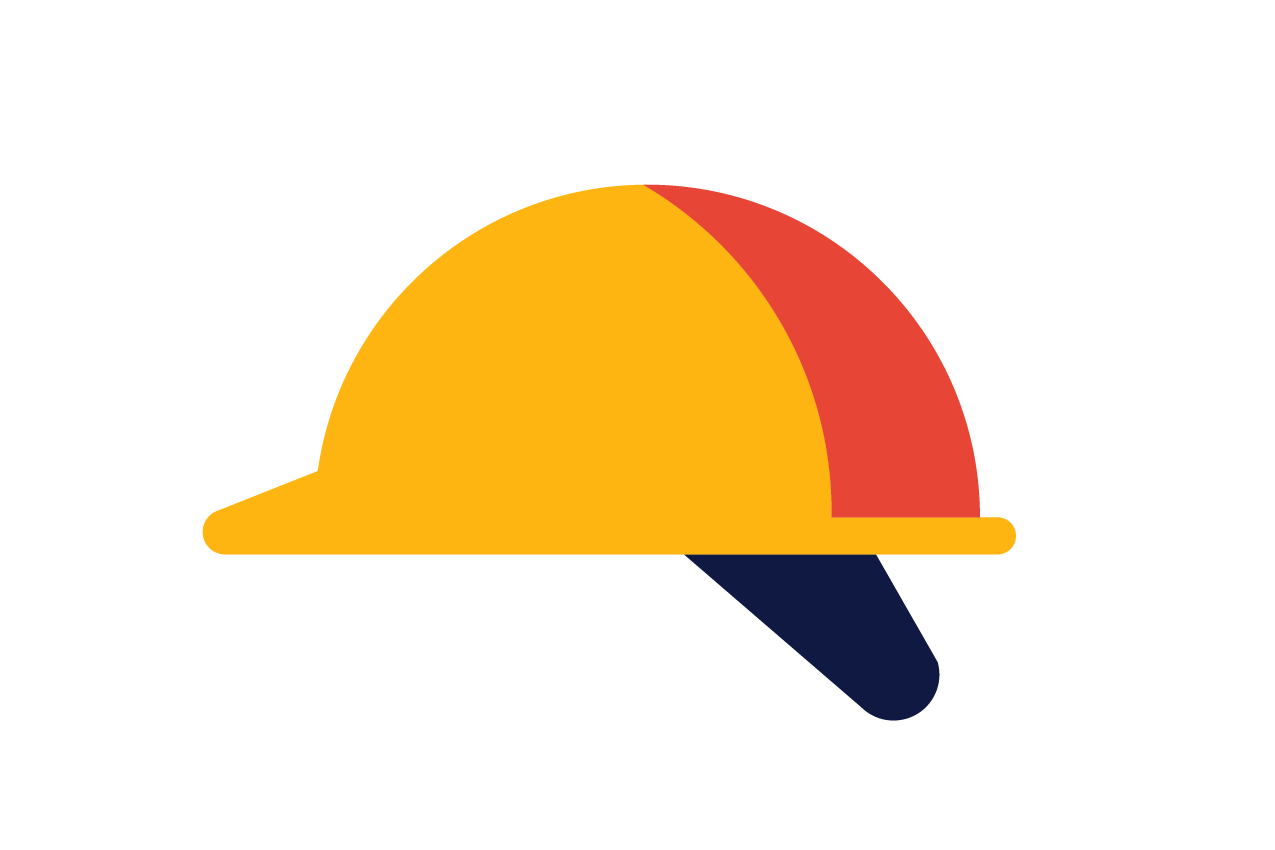The impact of AI on the construction industry.
Over recent years we have seen rapid developments in the world of artificial intelligence (AI) which has caused somewhat of a frenzy across the media and the world of work. These developments have led people everywhere to question how this technology will impact their work and personal lives. Already, employers are implementing AI across their organisations to empower and accelerate their workforce in new and innovative ways. However, this also raises an age-old question on everyone’s mind: do people feel they are doomed to be displaced by technology?
The answer is no, our latest findings show that a quarter of UK workers now use AI regularly, with one in ten using it daily. Over half of workers surveyed believe AI will affect their role in the next five years — but only 4% expect to lose their job to AI (compared to over a quarter being ‘very worried’ about losing their job to AI in summer 2023). Globally, most (52%) believe AI will lead to their own career growth and promotion rather than losing their job. This is evidenced by recent research revealing that on average, UK employers are willing to pay a 14% wage premium for jobs which require AI skills. Furthermore, almost two in five UK employees (37%) are excited about the prospect of AI in the workplace, a more common attitude than concern, which was expressed by one in three (33%).
However, when we look at the data for the construction industry specifically, the picture painted isn’t quite so positive: 11% less employees are excited by the prospect of AI in the workplace compared with UK employees as a whole. Moreover, a third (34%) of construction workers are worried about the impact of AI on their jobs.
Building our future.
Compared with other industries, construction is clearly in the early stages of the technology adoption cycle, due to it being one of the least digitalised industries globally: according to Forbes, productivity in construction has been almost stagnant over the past two decades, growing at only 1%, compared to a growth rate of 3.6% in manufacturing and 2.8% for the whole world economy. However, given that construction provides at least 6% of the UK’s GDP, gains in productivity through better data and adoption of technology through the design process would not only increase productivity but also help build more sustainably.
It would seem that the UK’s construction workers agree that tech and AI could bring a huge opportunity to themselves and their industry, with 46% of those surveyed believing that upskilling in technological skills (e.g AI) will be essential in their role over the next five years. However, there seems to be a gap in understanding between employers and employees on how AI could be used in practice. This gap could explain the uncertainty that workers are feeling about their job security, and it presents a huge chance for employers to work with their teams to upskill and educate about AI.
So, how can AI be used in construction?
Improving productivity whilst reducing risk: 5 ways AI is used in construction already.
It is widely known that AI is already used in design processes in construction, for example for 3D modelling of building materials. But how else is it used?
1. Project Planning
AI can improve project planning by analysing data and providing insights into potential risks and challenges. AI algorithms can process vast amounts of data and use this information to make predictions about how a project will progress, allowing for optimisation of project schedules and budgets. It can also help when sourcing the right products and materials for any project – a process that is extremely time-consuming for designers and architects.
2. Enhanced Safety
Safety is a crucial consideration in the construction industry. AI can be used to monitor construction sites and identify potential safety hazards. AI powered drones can be programmed to identify hazards on-site such as loose scaffolding, whilst also monitoring workers’ behaviours, and flagging anything unsafe.
3. Increased Efficiency
AI can support the optimisation of heavy machinery and other equipment - it can monitor how it is being used, reducing downtime and increasing efficiency.
4. Improved Quality Control
Quality control is essential in the construction industry to ensure that projects meet the required standards and reduce risk. AI can be used to monitor the quality of construction materials and identify potential defects or weaknesses. AI can recognise when certain products or materials are incompatible with specific systems. Identifying this in the early design stages can then reduce the need for costly rework further down the line.
5. Remote Monitoring
AI can be used for remote monitoring of construction sites. This can be particularly useful for large-scale projects where multiple sites are involved. This can help to identify potential issues before they become major problems, allowing for corrective action to be taken quickly.
Technology with the human touch.
It is clear that even though AI can print a brick, it can’t lay it: a person needs to do this. All the examples listed above showcase that AI in construction is most powerful and productive when it is combined with the human touch. There is a huge opportunity for employers to utilise the benefits of this technology in their organisations to not only grow their businesses, but also to attract and retain highly skilled staff.
No matter how advanced, construction technology still takes highly-skilled minds to fact-check, analyse and understand the nuances required for each stage of construction. When using generative AI tools such as ChatGPT or Google Gemini, humans need to ensure that the data it is fed is up to date. AI also can’t understand the outputs it produces, so humans need to educate to improve.
Top tips for employers.
It’s vital that organisations within the construction sector not only realise the impact AI has on its business but also the employees within it. 34% of workers surveyed within the construction industry felt worried about their role due to AI, whilst 33% were excited about the prospects of AI in their industry. So how can employers utilise AI to help retain and attract talent?

The UK is waking up to the AI revolution. More than a fifth of employees — 22% — have received, or are receiving regular AI training. While a slice of the workforce appears to have gained comfort that they’ve nothing to fear from AI, it’s worrying that 61% haven’t had a discussion about AI with their employer. Either it’s too far off to look at yet, or people are burying their heads in the sand.
Training and upskilling.
Whilst some still think the major impacts of AI are a while off yet, it's important to understand how upskilling staff now can really offer them security and reassurance when it comes to their role. It also helps hiring managers future plan their teams and succession planning within their current structures.
However, most UK workers are not receiving any training on adapting to AI in the workplace. The majority of workers surveyed as part of our 2024 Employer Brand Research told us that they lack information from their employer about both the impact of AI and upskilling opportunities, with nearly two-thirds stating that they haven’t spoken to their employer about the potential impact of AI on their role.
43% of construction professionals stated that they need more learning and development around AI to future proof their career and enhance their earning potential, as only 5% had been offered any training around this in the last 12 months. Offering a structured plan to employees around this can provide them with a sense of progression and development which will have a direct impact on the retention of staff within your organisation.
Reassurance and clarity.
Our data shows that just over a quarter (27%) of construction workers would prefer to change jobs or careers rather than learn how to use AI. This could be detrimental to staffing the sector. This suggests that a key part of managing any change is understanding why, and changing mindsets. In fact, across any sector, effective adoption of any technology hinges on people’s comfort level working with new tools. Employers in the construction sector need to be clear about the impact of AI for their staff, whilst thoroughly communicating expectations, goals and timelines for change: it is not an overnight process.
Involving employees when discovering impact on business.
There could also be an opportunity for those within the sector who welcome the introduction of AI to support those who feel differently: our survey results showed that a third of construction workers are excited about the opportunities it could bring.
Employers could also consider gathering feedback from the workforce on their experiences with AI, and areas that they think it has helped - giving people a say in how they use AI is essential to support change management. This could be done by regular surveys.
Share how employees embracing AI can open different careers paths.
In reality, an open and honest dialogue about AI is key. Employers could produce detailed career outlines that showcase how AI can support career progression. They could also share with employees details of future opportunities that could come from AI adoption, for example, using virtual reality to send unmanned machines or drones into building sites which could pose health and safety threats to people.
Having this clarity can motivate existing employees to embrace the change, whilst encouraging new joiners to consider your organisation when job searching.
By doing all of this, not only will employees benefit, but employers can also work to retain existing employees and attract new ones to the sector. If done correctly, there is huge potential for staff to develop their careers and increase their fulfilment at work, but if done incorrectly, there is a risk of staff leaving the sector. With 17% of construction workers already considering leaving the profession due to poor wellbeing, it is crucial that all staff feel supported through the introduction of AI.
If you would like a discussion about your organisation’s approach to AI, don’t hesitate to reach out to the Randstad team.



